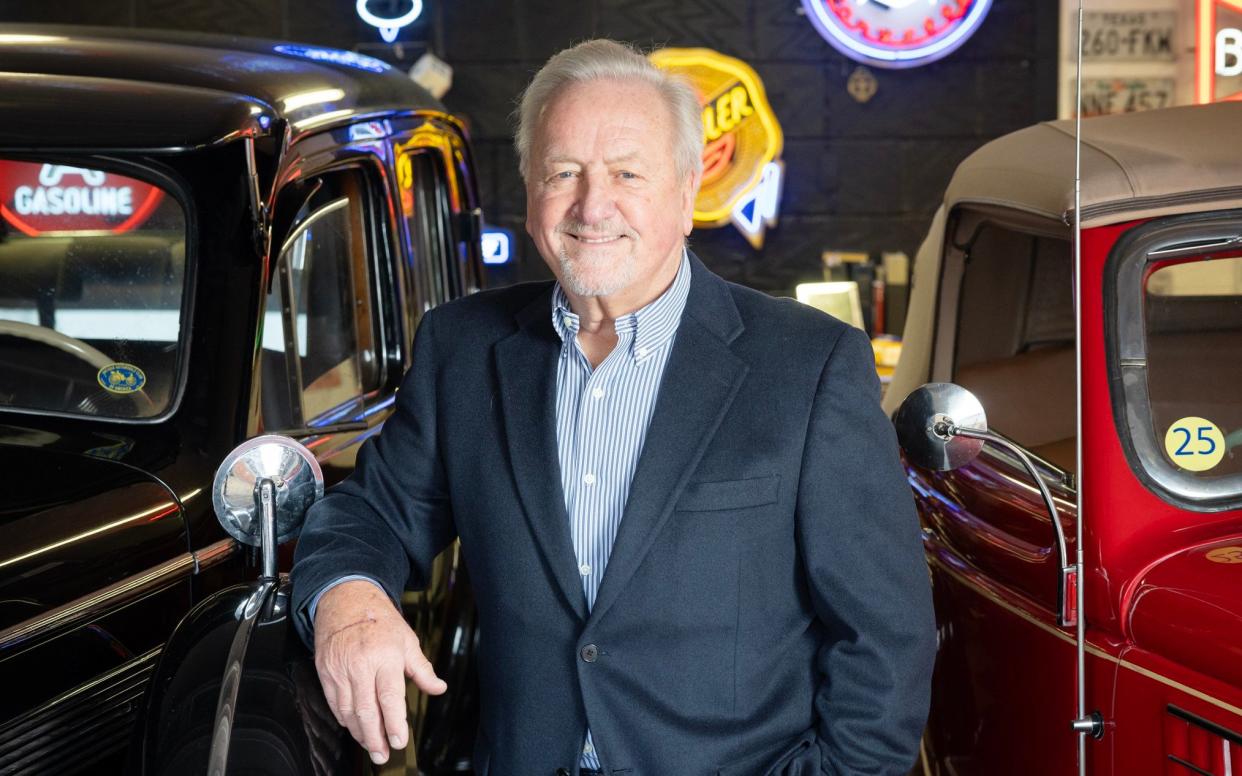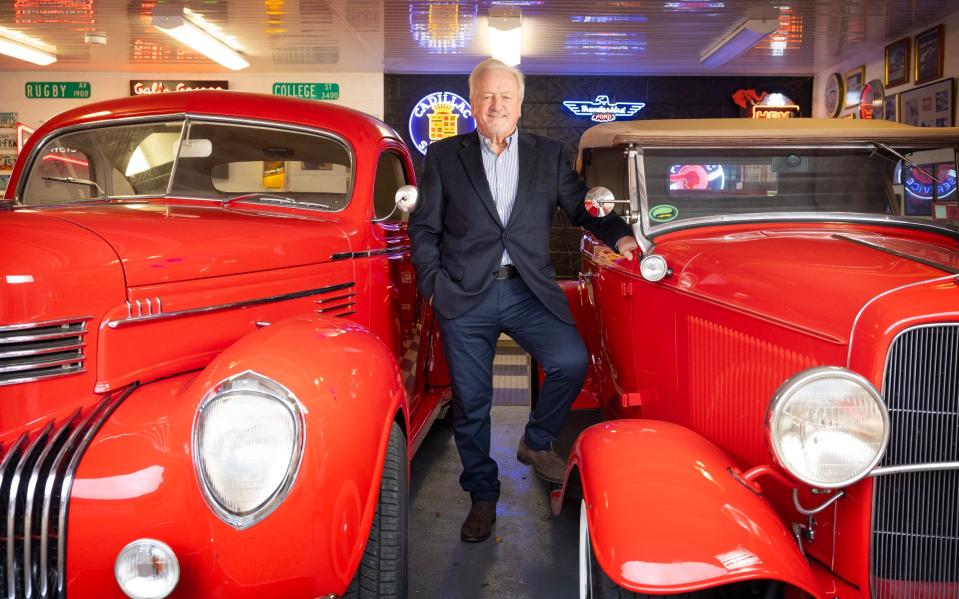‘I was a working class East Ender – now I have a £48m business’

- Oops!Something went wrong.Please try again later.
In a new series, Telegraph Money speaks to those who have found success without earning a degree.
For Gary Waller, a teenager from a working class family in east London during the 1960s, going to university wasn’t an option.
When he left school after completing his O Levels, he did a year at college – but it wasn’t for him.
“I was a square peg in a round hole,” he says.
Mr Waller, now 72, soon decided he’d rather work for himself than have others tell him what to do and set up his own business.
The group, which has a presence in Britain and America, had sales that reached about $60m (£48m) last year.
He says university has since become a “box-ticking exercise” demanded by many employers, but what helped him succeed as an entrepreneur was “street smarts” that are not taught in school.
Mr Waller, who now lives in a rural part of Essex, says his aunt helped him get his first job at a bank where she had also been working.
It was an admin role for overseas offices, which he says “was like watching paint dry”. “I can’t tell you how boring it was,” he says.
He remembers his office having strict rules, such as requiring permission from the bank manager to get married, have long hair and take your coat off during the summer.
“That regimented attitude was not for me,” he says. “If I thought someone was being stupid, I had trouble not saying anything else. I was a bit of a rebel. That was the start of it: I thought, I can’t work for anyone else.”

He soon moved on to a job supplying ships with cargo, then to a job doing logistics work in the cargo division at a steamship company.
“When I was 23, I just thought, this doesn’t really seem like it’s going anywhere,” he says. But he had learnt a lot about freight forwarding – the coordination of the shipment of goods from one carrier to another – and decided to set up his own company, The Alliance Group of Companies Ltd.
He secured a 100pc mortgage in 1975 and used the money he had saved up for the deposit to get started.
Waller had “many promises of business” from people he’d known. “Probably one in 100 came to fruition,” he says. “It was a case of literally banging on doors, making telephone calls, trudging around and trying to pull the show together.
“My wife was working at BP, and she was actually earning far more than me. She was really singularly responsible for us surviving and paying a mortgage rate of 17pc in those days, it was quite shocking.
“It was just really the hunger and the desire not to go back and be working for a large organisation and the freedom of being on your own was what really kept me at it. I had no children then either.”
For young people with similar dreams, he says they should be ready to make sacrifices.
“Be prepared to forego vacations,” he says. “Be prepared to forego the holidays in Greece and what appear to be the obligatory meals out and theatre. In the first five years of my business, I didn’t go on vacation at all.
“Make the sacrifice while you’re still young enough and you still have the energy. Quite honestly, when I look back on what I achieved, I couldn’t do it again.”
He says young people should not be “disheartened” by setbacks, as they are inevitable.
“The essential difference between here and the States is that the Brits tend to go, ‘What if it goes wrong?’. The Americans go, ‘Let’s do it, and if it goes wrong we’ll deal with it’. There’s more of a can-do attitude in the States than there is in Europe generally, not just the UK; people talk themselves out of it.”
Mr Waller says he talked prospective clients into giving him a chance by telling them it would not hurt to get a quote from him, even if they already had a freight forwarder. “Once you get a quote, you’ve opened the door to keep talking to them about working with you,” he says. “Sometimes they will tell you to p--- off but other times it will work.”
He says people were kind, and he played up how young he was and in need of help. “My logic was, if I phoned up enough people, I would eventually break through. I took people out to lunch and swore I’d get work out of them because the lunch would cost me what I’d make from the job.”
Now he has large multinational companies as some of his biggest clients.
Mr Waller did not take loans for banks but piled in his own savings and had clients who paid upfront for his services.
He also branched out, buying up residential and commercial property outright and using the rent to help finance his business.
‘Not everyone is cut out to be a leader’
Mr Waller’s biggest mistakes include “expecting people that work for me to be as switched on as me”.
“I know that sounds immodest, but there’s leaders and there’s followers,” he says. “There’s middle management and top management.”
He remembers his company growing from a four-man band and that one of his staff members did not have the management skills to adjust to the expansion and the increase in responsibilities.
“I had to let him go, because he felt that he was owed something because he’d been there from the start,” he says. “But people had joined after him and they had demonstrated they were pretty smart and they had grown with the company.”
Mr Waller says he learned that not everyone “wants to be king of the castle”, or is capable of being upper management.
“You must not assume that everyone’s got the same ambition or the same drive that you and your senior staff have got,” he says.
He also says a university degree is “not the panacea” – it is necessary in some industries such as medicine and law, but in commerce it doesn’t mean you are going to be a success.
Some young people could be better off saving their money and getting real world experience, he says.
Another tip is to trust your instincts. If he gets a gut feeling about something, he says it is amazing the amount of times it turns out to be true.
Have you found success without a degree? We’d love to hear from you. Email money@telegraph.co.uk

